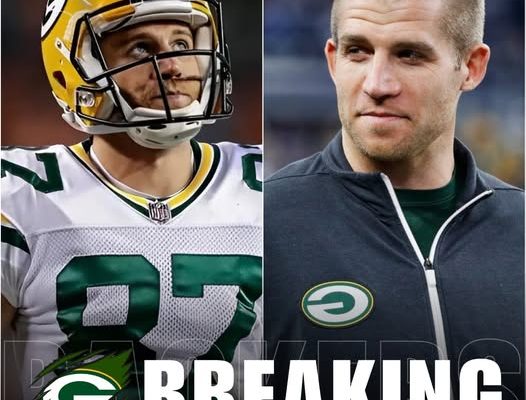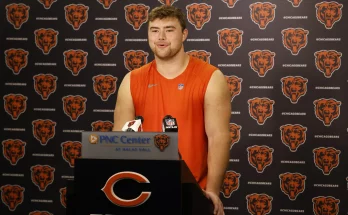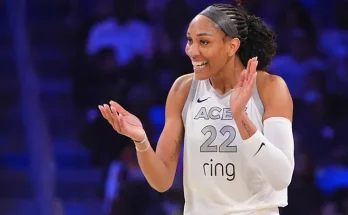Jordy Nelson’s return to Green Bay in a new role as co-owner of the Packers is the kind of sports story that transcends mere business headlines. It’s a rare instance where nostalgia, loyalty, and long-term vision intertwine to create a moment that feels less like a corporate move and more like a heartfelt chapter in a shared history. For years, Nelson was the man who could stretch the field, who could snatch Aaron Rodgers’ perfectly thrown spirals out of frigid Lambeau air and turn them into six points. Now, instead of catching passes, he’s catching a piece of the franchise itself, taking a seat at the table where the future of one of the NFL’s most storied teams will be shaped. For fans, it’s more than a symbolic gesture—it’s a reaffirmation that some bonds between player and team never fade, no matter how many seasons pass.
The announcement dropped like a thunderclap across Wisconsin, sparking a mix of excitement and nostalgia. Packers fans, who for years watched Nelson’s signature No. 87 jersey flash across their television screens on crisp autumn Sundays, now get to see him back in green and gold in a way they never imagined. While many ex-players step into media roles or coaching, co-ownership is rarer still, and in Green Bay—where the franchise operates under a unique public ownership model—it carries a particular weight. For Nelson, who has always valued the culture and community that the Packers represent, this is not just about financial investment. It’s about being part of something he already considers family, ensuring that the values he cherished as a player remain part of the organization’s DNA.
Nelson’s playing career in Green Bay was defined by grit, consistency, and a knack for making the spectacular look routine. Drafted in 2008, he quickly became a cornerstone of the Packers’ passing attack, forming a telepathic connection with Rodgers that tortured defenses for nearly a decade. He was the deep threat who could run the perfect route, the possession receiver who could move the chains on third down, and the red zone weapon who always seemed to find a way to get open. His performances in big games, including the Packers’ Super Bowl XLV victory, solidified his status as one of the franchise’s all-time greats. To this day, many fans still rank him alongside legends like Don Hutson, Sterling Sharpe, and Donald Driver when discussing the best receivers to ever wear the Packers’ uniform.
Now, as co-owner, Nelson steps into a vastly different role, one that demands strategic thinking, long-term planning, and the ability to navigate the often complex world of NFL business operations. While catching touchdowns is a matter of split-second decision-making and instinct, guiding a franchise forward requires patience, vision, and a willingness to tackle challenges that play out over years, not seconds. Nelson will be lending his insight not only as a former player but also as someone who has lived the unique culture of Green Bay from the inside. His perspective will be invaluable in ensuring the team maintains its identity while adapting to the constantly shifting landscape of professional football.
For Wisconsin’s faithful, Nelson’s homecoming feels almost poetic. The snow-covered end zones where he once celebrated touchdowns now serve as the backdrop to his new mission—building a team that can once again contend for championships. The idea of a player who once played for the love of the game now helping run the team for the love of its future resonates deeply with fans who value tradition as much as they do winning seasons. In Green Bay, where the team is literally owned by its fans and the sense of community runs deeper than in any other NFL city, Nelson’s involvement feels like the perfect fit.
It’s also worth noting that Nelson’s presence in the ownership group could have a tangible impact on player relations. Having someone at the top who has been in the locker room, who understands the grind of an NFL season, and who knows what it takes to succeed at the highest level can bridge the gap between management and the athletes on the field. Players may feel more confident knowing that someone who has been in their shoes is helping shape policy and make decisions about the team’s future. It could also be a subtle but powerful tool in free agency—after all, who wouldn’t want to play for a team where one of the owners actually knows what it’s like to take hits over the middle on third-and-eight in a blizzard?
This move also underscores how former players are finding innovative ways to remain part of the sports world after their playing days end. For Nelson, retirement didn’t mean disappearing from the spotlight or fading into obscurity. Instead, he chose a path that allows him to contribute to the game from a different vantage point. In many ways, this role might be even more impactful than his playing career, as the decisions made in the ownership suite can shape decades of franchise history. Nelson’s competitive spirit, which drove him to excel on the field, will now be channeled into ensuring that the Packers remain not only competitive but also true to the principles that have made them unique in professional sports.
Fans have responded with an outpouring of support. Social media lit up with photos, videos, and memories of Nelson’s greatest moments—long touchdown runs, diving catches, and that ever-present calm confidence he carried. In sports bars across Wisconsin, conversations have shifted from preseason depth chart debates to speculation about how Nelson’s influence might shape the team’s future. Could this mean a greater emphasis on retaining homegrown talent? Might it lead to new initiatives in player development or community outreach? While no one outside the ownership circle knows the specifics yet, the general feeling is one of optimism. If Jordy Nelson believes in this team enough to invest in it, then there’s reason to believe the future is bright.
There’s also a generational component to Nelson’s return. Younger fans who grew up watching him play now get to see him in a position of leadership, while older fans see a continuation of a tradition where the Packers remain a close-knit family. His presence serves as a reminder that the Green Bay model—small market, fan-owned, deeply rooted in community values—can still thrive in a league increasingly dominated by big cities, billion-dollar owners, and glitzy stadium deals. Nelson represents a bridge between eras, someone who can appreciate the team’s history while steering it toward a sustainable, competitive future.
Of course, being part of the ownership group is not without challenges. The NFL is a business with shifting priorities, new technologies, and constant competitive pressure. Green Bay, despite its rich history, faces the same issues as every other team: managing the salary cap, keeping up with evolving player health and safety standards, and finding ways to remain competitive year after year. Nelson’s ability to adapt to these realities while preserving the Packers’ identity will be key to his success in this new role. But if his career is any indication, he thrives when the stakes are high.
For now, though, the focus is on the emotional weight of the moment. Seeing Jordy Nelson step back onto the turf at Lambeau—not in pads and a helmet, but in a suit, ready to take on the responsibilities of ownership—marks a new chapter in Packers history. It’s a story that blends personal loyalty with professional ambition, and it’s one that fans will remember for years to come. In a league where players often move from team to team and loyalty can feel like an outdated concept, Nelson’s return to Green Bay sends a powerful message: some bonds are simply unbreakable.
In the coming years, his role will evolve, and his impact will become clearer. Whether it’s shaping draft strategies, influencing free-agent signings, or championing new community programs, Nelson will have plenty of opportunities to put his stamp on the organization. But for now, the symbolic power of this homecoming cannot be overstated. It’s a reminder of why sports matter—not just for the wins and losses, but for the connections they forge and the sense of continuity they provide. Jordy Nelson’s journey from Lambeau’s end zones to its boardroom is a story about coming full circle, about giving back to the place that gave him so much, and about ensuring that the green and gold remain a source of pride for generations to come.
And so, in Wisconsin, the cheers that once followed Nelson’s every reception have returned—not for a game-winning touchdown, but for a new beginning. It’s a beginning rooted in the past but focused on the future, one where a beloved player has become a steward of the team’s legacy. The snow will fall again at Lambeau, the crowd will roar, and somewhere in the owners’ box, Jordy Nelson will be there, watching not just as a fan or a former player, but as a co-owner with a stake in every snap, every play, every victory. For Packers fans, it’s more than a headline—it’s a dream come true.



